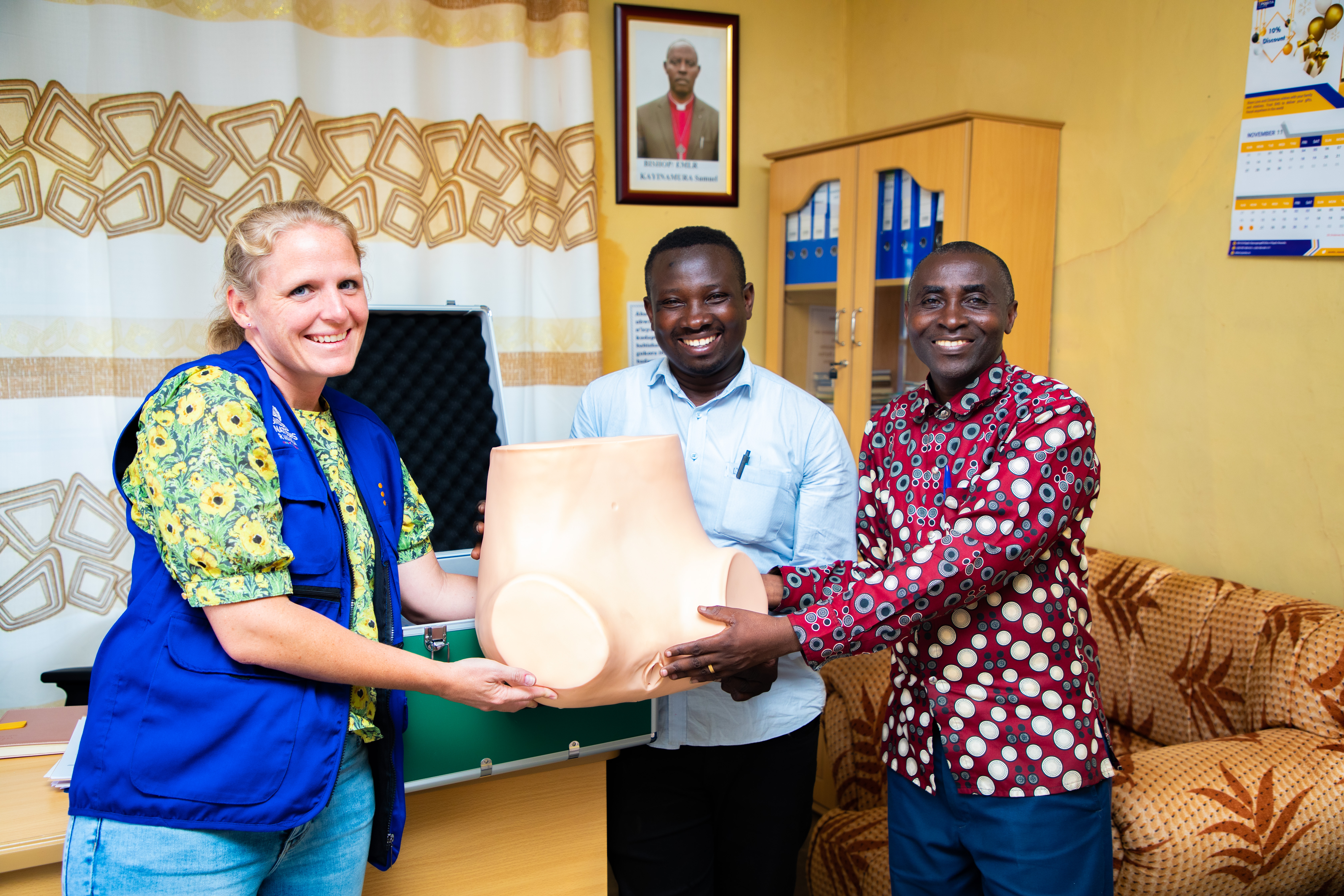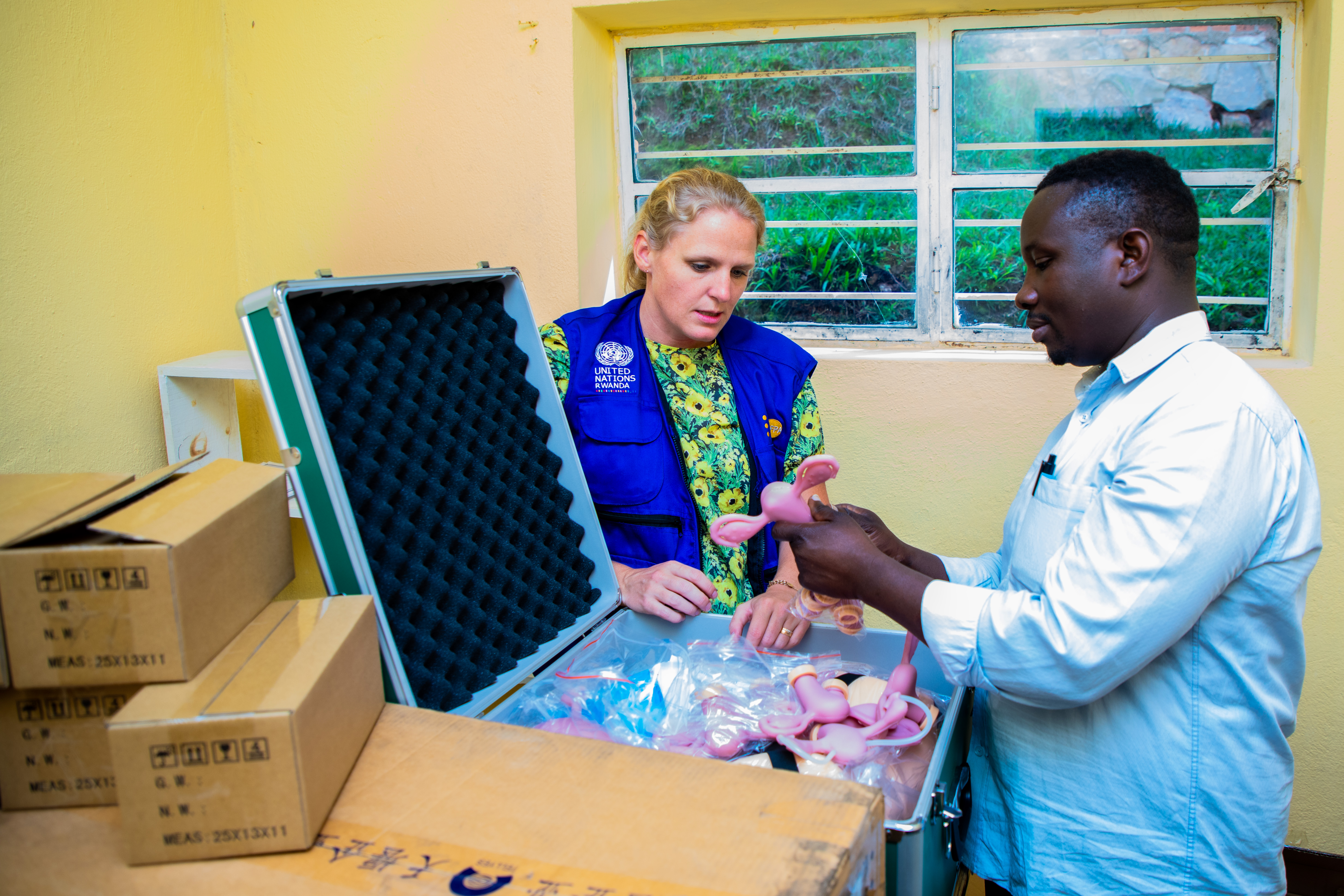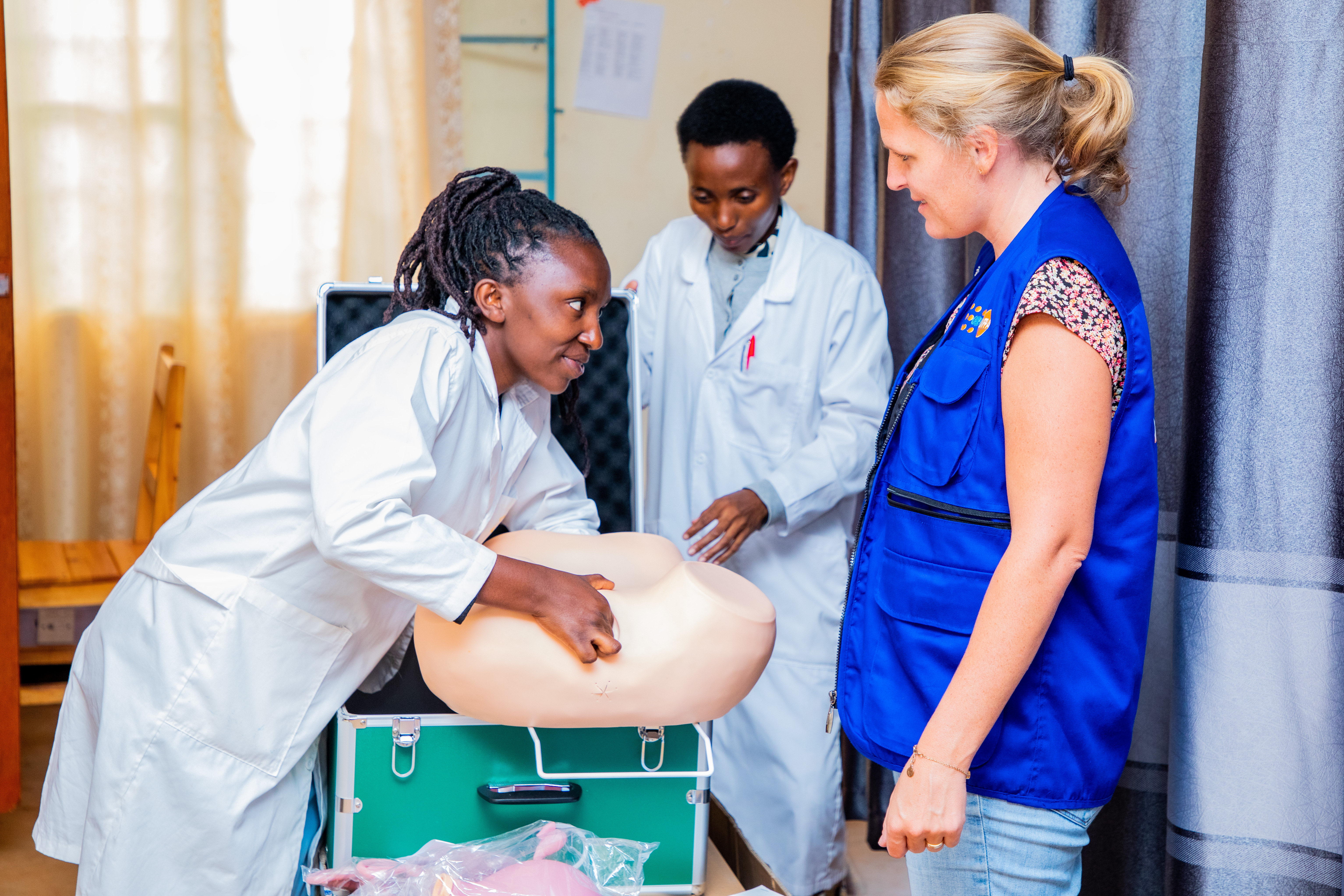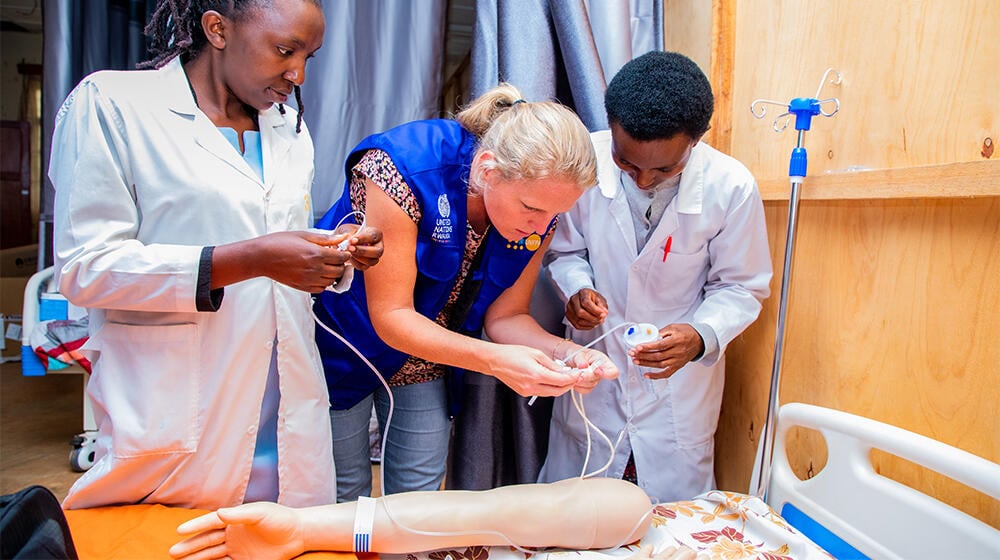The ability to meet the healthcare needs of a population depends largely on the knowledge, skills, motivation and distribution of people responsible for organising and delivering healthcare services. Nurses and midwives are critical health professionals highly needed in the healthcare system as they significantly contribute to achieving healthy lives and a world where every pregnancy is wanted and every childbirth is safe.

Building on an existing partnership between UNFPA and the Ministry of Health, and the Ministry of Education through the midwifery department of the University of Rwanda in capacity building of simulation labs, UNFPA distributed quality simulation laboratory equipment to the seven high schools that have started providing newly installed advanced diploma in nursing. The simulation lab equipment will promote quality education of the around 630 nursing students annually and enhance nursing care through improved practical application of theoretical learning in the simulation laboratories.
“We used to make long trips to rent simulation equipment in the neighbouring hospitals. But now some of the things that we were lacking, UNFPA has handed them to us. I am sure it will help us improve the quality of education we provide here at this school.” As stated by: Emmanuel Ukizebaraza, Headteacher, Groupe Scolaire Frank Adamson, Nyamasheke District.

Good education is key to quality health care and will lead to a reduction in maternal and neonatal mortality. It is against this background, that UNFPA Rwanda works with the Ministry of Health, Ministry of the Education/University of Rwanda and other partners to improve maternal health outcomes through dedicated investment in emergency obstetric and neonatal care services, maternal and perinatal deaths surveillance and response which help decision-makers understand how many women are dying, why, how to respond and the promotion of midwifery profession, as well as, supporting efforts to end obstetric fistula in the country.
“UNFPA continues to provide teaching and learning materials, furniture and technical assistance to the Schools of Nursing and Midwifery in Rwanda as part of the agency’s commitment to enhance the human resources capacity of the health sector. The support will promote quality education of health professionals and enhance nursing care through improved practical application of theoretical learning in the simulation labs.” Kwabena Asante-Ntiamoah, UNFPA representative stated during the handover of simulation equipment.

The Associate Nursing course is a program attainable at the upper secondary (A-level) by students who want to pursue nursing as their career and have successfully passed senior three mandatory examinations. These cohorts of students will be able to continue their careers at the university level in nursing and midwifery, medicine, and science options, as well as other health-related fields. Graduates from the Associate Nursing Program will be able to serve hospitals, health centres and health posts benefiting society as a whole. The Associate Nursing program is currently offered in seven schools; namely: ESSA Ruhengeri, GS Gahini, ES St Aloys Rwamagana, GSO Butare, ES Remera Rukoma, GS Kigeme, and GS Frank Adamson Kibogora with an enrollment capacity of thirty students per school.


